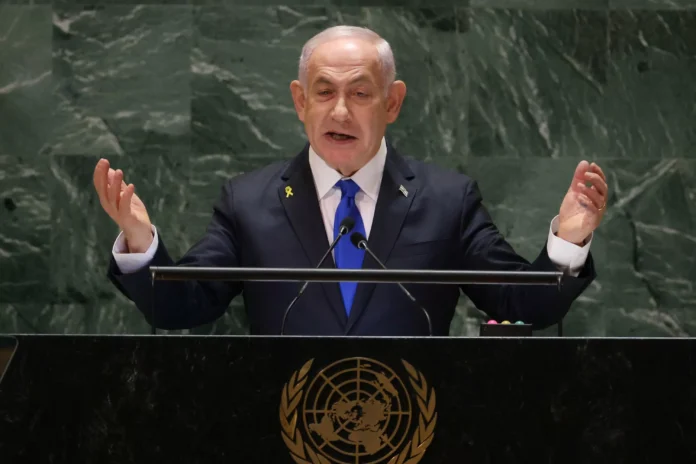Israel’s Prime Minister Benjamin Netanyahu, who has been accused of committing genocide in Gaza, recently issued a warning to Iran stating that there is nowhere in the Middle East that his country cannot reach. This bold statement comes at a time of heightened tensions between Israel and Iran, with both countries engaging in a war of words and actions.
Netanyahu’s warning to Iran comes as no surprise, as the two countries have been at odds for decades. Israel has long viewed Iran as a threat to its security, citing Iran’s support for militant groups such as Hamas and Hezbollah. Iran, on the other hand, sees Israel as an occupying force and has called for its destruction.
The recent escalation in tensions between Israel and Iran can be traced back to the United States’ withdrawal from the Iran nuclear deal in 2018. This move was strongly opposed by Iran and was seen as a betrayal by the international community. Since then, the two countries have engaged in a series of tit-for-tat actions, including airstrikes and cyberattacks.
In his warning to Iran, Netanyahu made it clear that Israel will not hesitate to take action against any Iranian aggression. He stated, “There is nowhere in the Middle East that we cannot reach. Our long arm will reach anyone who tries to harm us.” This statement sends a strong message to Iran that Israel will not back down in the face of threats and will do whatever it takes to protect its citizens.
Netanyahu’s warning also serves as a reminder of Israel’s military prowess. Despite being a small country, Israel has one of the most advanced and powerful militaries in the world. Its intelligence capabilities and technological advancements have made it a formidable force in the region. This has been evident in past conflicts, such as the 2006 Lebanon War and the ongoing conflict with Hamas in Gaza.
However, Netanyahu’s warning should not be seen as a call for war. In fact, the Prime Minister has repeatedly stated that Israel does not seek conflict with Iran. He has also expressed his desire for the international community to take a united stand against Iran’s aggressive actions in the region.
Netanyahu’s warning also highlights the importance of Israel’s strategic alliances in the region. Over the years, Israel has formed strong partnerships with countries such as the United States, Egypt, and Jordan. These alliances have not only helped Israel maintain its security but have also allowed it to project its power beyond its borders.
Moreover, Netanyahu’s warning serves as a reminder of the ongoing humanitarian crisis in Gaza. The accusation of genocide in Gaza has been a contentious issue, with Israel denying any wrongdoing and stating that its actions are in self-defense. However, the suffering of the Palestinian people cannot be ignored, and it is crucial for both Israel and the international community to find a solution to the conflict.
In conclusion, Netanyahu’s warning to Iran is a clear indication of Israel’s determination to protect its citizens and maintain its security. It also highlights the country’s military strength and strategic alliances in the region. However, it is important to remember that this warning should not be seen as a call for war, but rather as a call for the international community to take a united stand against Iranian aggression. It is also a reminder of the ongoing humanitarian crisis in Gaza and the need for a peaceful resolution to the conflict. As tensions continue to rise, it is crucial for all parties involved to exercise restraint and work towards finding a lasting solution.


